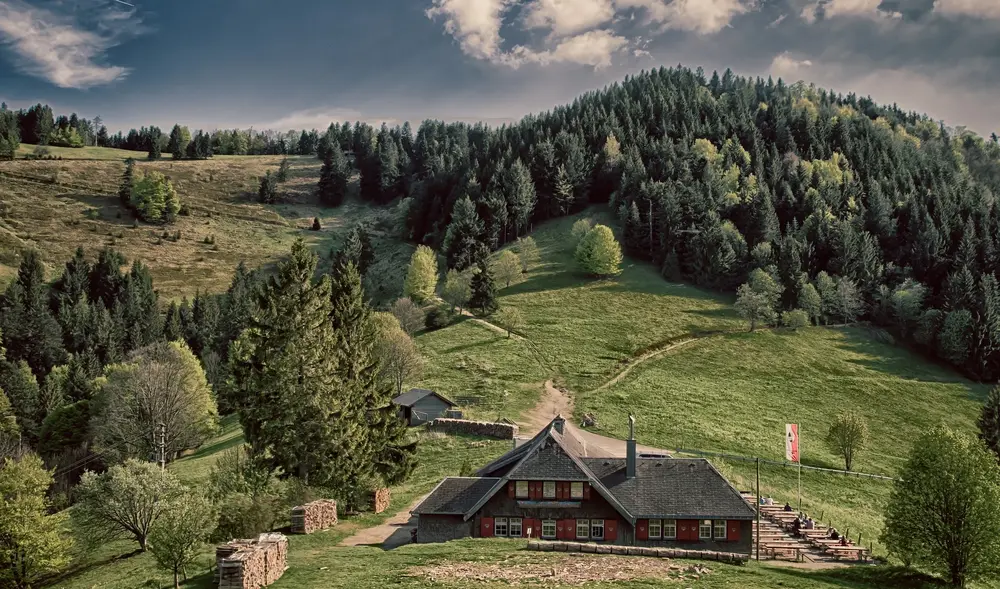Baden Württemberg: Why the election “im Ländle” is more than just a regular state election

This Sunday marks the kick-off for the upcoming election season in Germany. Baden-Württemberg’s state election falls within a year of five other state elections and, most importantly, one federal election in September, the Bundestagswahl. State elections usually function as influential trendsetters for the performances of political parties. Baden-Württemberg is this year’s most important state election, and comes with a chance for the Green Party to gain momentum.
The “Ländle”, as some people like to refer to Baden-Württemberg, might sound like a small pastoral valley located within the mountains of the Black Forest. The state in southwest Germany, however, is not just one of the largest but also one of the economically most powerful states and consequently more than just what its nickname suggests. To put it in perspective, the population of Baden-Württemberg is larger than that of Sweden, and their nominal GDP exceeds that of Nigeria. In such an economically strong state, the future prime minister will govern over 13 percent of the German population and carry out important state responsibilities including education, overlooking the police, and, as recent times have shown, determining the lockdown regulations. Nevertheless, besides future state policy, there is an even more important aspect of this upcoming election – its impact on September’s federal election and the overall party performances.
In Baden Württemberg, the Green Party is currently running the government in a coalition together with the CDU, the center-right party in Germany. These two parties are also leading in the latest polls (Green Party 33%, CDU 24%). Yet, on a federal level, the Green Party is in opposition and highly critical of the CDU-led government. This is just one of many examples of how state elections in Germany can put parties in odd situations when paired with a federal election. With only a few exceptions, German state elections take place in a cycle of five years. Since the federal election occurs every four years, an interesting rotation leads to an ever-changing election mix, and different state elections are preceding the federal election every time. In 2021, Baden-Württemberg and Rheinland Pfalz are the first states to hold elections this Sunday, and they will set an important foundation from which the parties will have to move forward.
In political science, this link between state elections and the federal election has been analyzed and researched for decades. In the ‘70s, Reiner Dinkel has outlined one of the most prominent examples of this relationship and his theory projects the following: The leading partner of a federal government coalition usually loses ground in the state election, while the strongest federal opposition parties typically gain support[i]. He continued that the months between the state and federal elections are an important factor because the greater the gap, the stronger the effects.
Applied to our case, this theory projects a net loss for the CDU and a net gain for the AFD and the Green Party. Whether or not this theory will manifest itself, is an open question for now. Nevertheless, and regardless of the result, on election night, the parties will have to react and answer questions about their respective performances. This part of state elections is especially important for high-ranking politicians because even though the election happens in a state, the federal level always bears some responsibility.
For some of Germany’s major parties, this year began with elections within the parties, and as a result, several changes in leading positions. A few days ago, the party “Die Linke” has elected Susanne Hennig-Wellsow and Janine Wissler as their new party leaders. The CDU has already decided on Armin Laschet for the position of party leader back in January. And the SPD has made its decision for party leaders and candidate for chancellor last year. Although none of these people have specific responsibility for Baden-Württemberg, to a great extent, this election will be attributed to them. Also, the fact that they have not been in office for long will most likely not excuse them, and hence, their personal leadership will be judged based on their party performance this Sunday.
The impact of this feedback following a state election should not be underestimated and has led to major political consequences in recent times. Take, for instance, the election season before the federal election in 2017. In this year, Martin Schulz of the SPD ran as a candidate for German chancellor against Angela Merkel (CDU). Early in 2017, he had already done many campaign events and in February, he polled around 30% on a federal level. Only three state elections were separating him from the federal election in September. However, these three state elections, chronologically, in Saarland, in Schleswig-Holstein, and in Nordrhein-Westfalen, have all been won by the CDU. Thus, the results impacted his momentum heavily and led to a federal election with one of the worst results in SPD history.
On a national level, the Green Party is the one currently performing strongly in the polls. Many of its party officials insist on their willingness to participate in a future federal government for which good results in the next state elections are necessary. Exactly here lies the reason why Baden-Württemberg’s election is so important for the Green Party in particular. The state government of Baden-Württemberg has a high approval rating and its first Green prime-minister, Winfried Kretschmann, will most likely be reelected this Sunday. One of the reasons why he is so popular is that his positions are much more moderate than those of the national Green Party. In German media, he is many times seen as a quasi CDU politician[ii]. But regardless of his positions, if he wins the election in Baden-Württemberg, the federal personnel of the Green Party will have a very favorable job in reacting to the win and influenced by this election they might keep up their momentum for the rest of the year.
Nevertheless, we should not forget that September is still some months away, and in a dynamic political summer, political support may sway to other parties. The timing, however, of an outgoing chancellor, a new era of political personnel, and yet a strong incumbent in the state of Baden-Württemberg, bares a very high potential of making the “Ländle” a new national trendsetter.
[i] Dinkel, R. (1977). Der Zusammenhang zwischen Bundes- und Landtagswahlen. Springer. Retrieved from: https://www.jstor.org/stable/pdf/24196581.pdf
[ii] Volmer, L. (2009). Die Grünen: Von der Protestbewegung zur etablierten Partei - Eine Bilanz. München: C. Bertelsmann.

About the author
Henrik Hansen is a first year MPP student at the Willy Brandt School, specializing in International and global public policy, and Social Entrepreneurship. He holds a Bachelor’s degree in Political Science from the University of Freiburg, Baden-Württemberg, and most of his work has been in the field of Transatlantic Relations.
~ The views represented in this blog post do not necessarily represent those of the Brandt School. ~